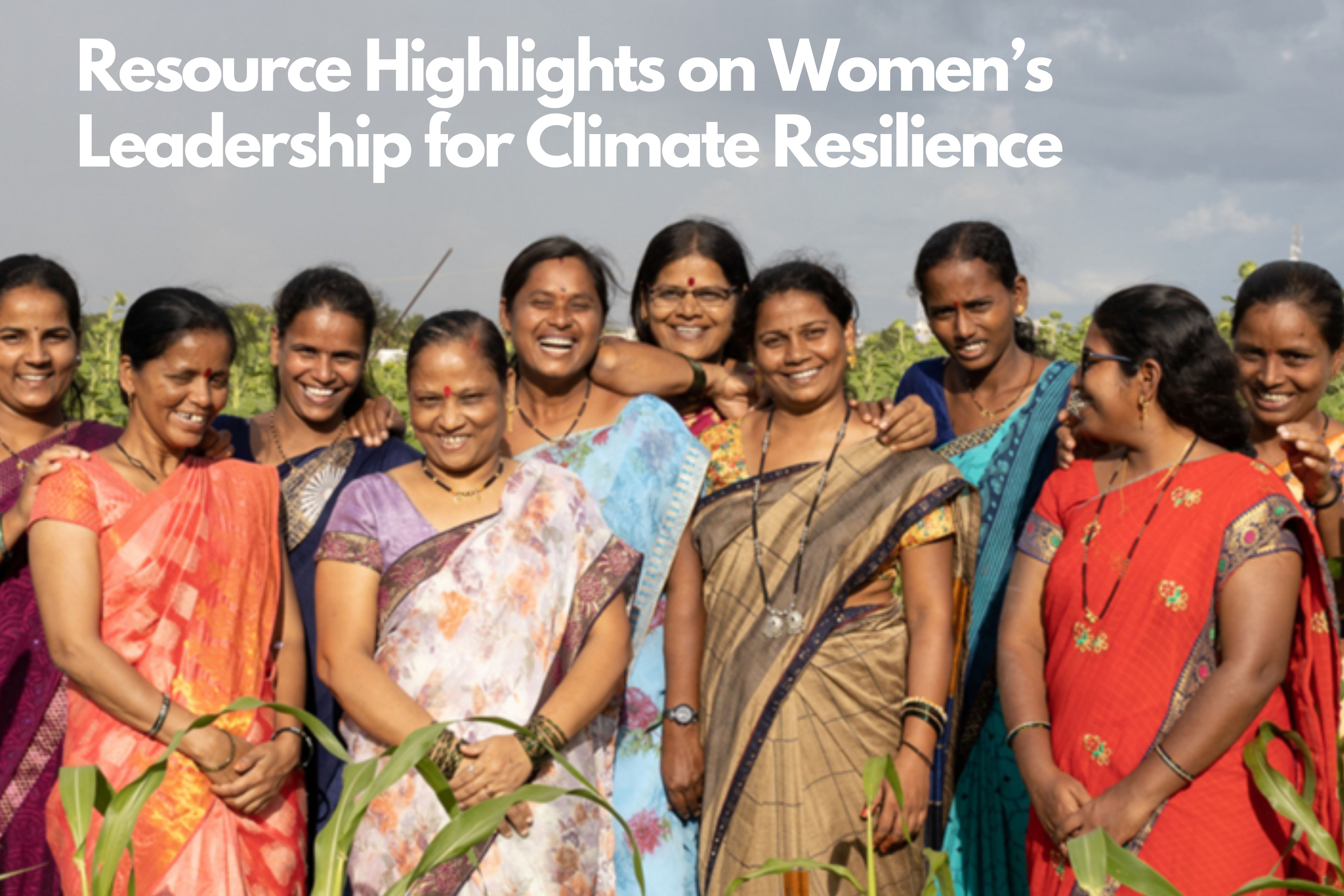Apr 2025
Women's Leadership Resource Highlights

-
SEWA Cooperative Federation's Report on "Workspace Mapping- Mapping Vulnerabilities of Women Artisans during Extreme Heat"
-
About the Report: The Self-Employed Women’s Association (SEWA) Federation, a cooperative network supporting 112 women-led enterprises, recently released a study examining the impact of extreme heat on home-based artisans. Focusing on the Abodana Mahila Chaapkaam SEWA Sahkari Mandali in Ahmedabad, the study explores how artisans navigate climate risks and adapt their workspaces. It introduces a framework built around space, amenities, ventilation, and lighting—offering a model to enhance working conditions for informal women workers across India.
-
Mahila Housing Trust's Report on Impact Assesment-Heat Risk Insurance
-
About the Report: Mahila Housing Trust (MHT), a grassroots development organization working to build sustainable and gender-inclusive cities, conducted a study on the impact of extreme heat on women informal workers. Focused on Ahmedabad, Vadodara, and Surat, the study examines how rising temperatures affect livelihoods and well-being. It evaluates a heat risk insurance scheme piloted with 26,000 women members of MHT’s credit cooperatives, offering financial relief when temperatures breach critical thresholds. In Ahmedabad, payouts of ₹15,00,000 reached 2,000 women, highlighting the model’s potential to enhance economic resilience for vulnerable workers.
-
About the Video: Mahila Housing Trust, in collaboration with the Ahmedabad Municipal Corporation and Municipal Transport Corporation, has launched India’s first cool bus stop at Lal Darwaja—an innovative step under the city's Heat Action Plan. The high-pressure mist cooling system absorbs heat while consuming less electricity than ACs, making it an energy-efficient and eco-friendly solution!
-
But how is it being received by the public? Watch the video to find out!
-
About the Video: Gram Vikas, an Odisha-based nonprofit, works with rural communities in the state to strengthen water security, livelihoods, sanitation, and other key areas. Through their training fellowships, young Adivasi women in 61 villages have become Jal Bandhus, using digital tools to map aquifers, track rainfall, and measure spring discharge—ensuring a steady water supply for their communities. This video captures their journey, highlighting how they are using technology to secure water for the future. Watch it here.
-
Article by SaciWATERs, Pragati Abhiyan, Lipok Social Foundation
-
About the Article: For women across India, water is a crucial resource dwindling under mounting climate challenges. From walking miles to fetch water to managing household and agricultural needs, the burden falls disproportionately on them, straining their health, time, and economic opportunities. Yet, women are not just bearing the crisis; they are leading solutions.
-
Explore how women from marginalised communities are spearheading water conservation efforts and why gender-sensitive approaches are crucial to addressing India’s water crisis.

